
Discover more from Weapons and Strategy
Ukraine's Effort to Interfere in Russia's Election Backfires
Putin Emerges Stronger than Ever
Ukraine's attempt to interfere in Russia's Presidential election has backfired. Putin's internal support is stronger than ever. The geniuses in NATO and in US intelligence simply failed to understand Russia or the Russian election system.
I was a Presidential election observer in two countries: Uzbekistan and Taiwan. They are as different as night and day. The contrast is important now that Russia has completed its presidential election.
Taiwan is a vigorous democracy. Moreover, so far as I could determine, Taiwan's election process is scrupulously honest. There are three major political parties and plenty of debate. I spoke to candidates at the national and local level around the country, visited polling places (many of them in schools), and attended party rallies. I listened to explanations from the major candidates expounding on their policies and agenda.
Unlike Taiwan, Uzbekistan is not really a democratic country, but it does hold elections. The form of the voting process is first class. Like Taiwan, many of the polling stations are in schools. Votes are honestly counted. But the problem is, unlike Taiwan, there is only one real candidate. The real candidate runs against a token opponent, and everyone understands how it works.
In fact, I attended a luncheon after the election where the "results" were announced. The opposition candidate, who received only a tiny vote, apologized for running in the election, saying he only did it so there was a second candidate for President.
While in Taiwan I could visit with the candidates, in Uzbekistan that was not permitted.
So what is the point of running an election if the outcome is foreordained? Is it to fool the outside world? Is it to somehow tell the people of the country that there is some sort of democratic process?
The issue was on my mind in Uzbekistan. I met many people, including young and dynamic reporters, one of whom was very popular. She ran a radio call-in talk show where people raised various issues and other callers would comment, as would she. These programs dealt with social issues, not political in the usual sense. “My boyfriend walked out on me. My rent is too high. My car broke down because of bad roads.”
She was very positive about the election. It was hard for me to understand.
When I visited a polling place in central Tashkent, a pleasant elementary school sited on a small park, everything seemed normal. People showed up, got their ballot, voted, and the voting was secret and protected. There were local election observers and the process looked fair and clean. I spent probably half an hour watching the process. I met the election workers, who were very happy to have visitors from “outside.” Then I went outside to head back to my hotel. As I walked through the park, an elegant older woman appeared, waving her arms. She wanted to talk to an election observer. Happily, I had a translator with me.
In clear language she told me not to be confused about the meaning of the election. It was not about picking the best man. Uzbeks already knew who the best man was and they would vote for him. The election, she said, was about demonstrating backing for the best man, and about voting for stability. "We want a leader here in Uzbekistan like Putin in Russia." she said. "We need a strong leader. In this country we have terrorist threats and we want that stopped. We want to build our country and make it a showcase for the world. Democracy here is not like in the United States. Democracy here is to show our respect and support for our leader."
I don't know if she was a government plant, that was possible. But even if she was, her message was undeniably clear. (Afterwards, I thought her pitch was too clever for government-run propaganda.)
The American and European press is full of nasty characterizations of the Russian election, calling it a sham and a fraud, and spewing out the usual arguments about the suppression of the Russian opposition and the "resistance" to the vote in Russia.
There is no doubt that the opposition in Russia is suppressed. Russians don’t have political freedom as such.
Russian elections, like the Uzbek ones, serve a different purpose than to have candidates actually compete and offer different approaches to leadership.
Obviously the Russian elections were not democratic in the normal meaning of the term. The elections have a democratic form. In all there were four candidates (outdoing their Uzbek counterparts). None of the others received more than 4.31% .
The real vote was about Putin and his leadership.
Millions of Russians voted. The Ukrainians were so concerned about the election that Ukraine mounted a suicidal invasion force to try and stop voting in the Russian areas bordering on Ukraine, especially the Belgorod city and region. Over the three days of the Ukrainian operation, Ukraine killed 11 civilians using drones and rockets and injured another 82, including nine critically. One election official counted among the dead, as did a thirteen year old girl (her father was seriously injured when their car was hit by a drone strike).
Ukraine launched hundreds of drones fired at targets inside Russia, some aimed at Moscow and others at St. Petersburg, mainly at power plants and some airfields including Domodedovo in Moscow. Domodedovo, located south of Moscow, is the second busiest airport in Russia after Moscow’s main international terminal, Sheremetyevo.
The Ukrainians assembled a strike force that included around 1,500 Russian speakers in a special unit, a large number of foreign fighters, plenty of tanks and armored personnel carriers (including Bradley Infantry Fighting Vehicles), and shock troops from elite Ukrainian units. Over four days they consistently failed to capture any territory or even a small village. It was so bad that Ukraine's head of military intelligence, Kyrylo Budanov told Vlodomyr Zelensky, Ukraine's president, that the planning of their operation was compromised by a traitor, or so he believed.

Budanov possibly planned the operation with Victoria Nuland, and this could have been the "surprise" she mentioned when she hurriedly visited Kiev at the end of January. She resigned or was fired on March 7th.
On March 18 the Russians targeted a meeting of senior Ukrainian security and defense commanders. At the time of this writing, very little is known other than the Russians believe that many were wounded or killed. It was part of Russia's response to the Ukrainian invasion of Russian territory.
The Ukrainian operation was aimed at weakening support for Putin and disrupting the election in Russia. Why bother if the election outcome was predetermined? Why sacrifice countless lives?
We do not know why the Ukrainian leaders and their backers in NATO thought that an invasion would work and somehow the Russian elections would be discredited. This was altogether a fantasy.
The Russian election was not affected in any significant measurable way. Putin won with 87.28% of the vote. The turnout for the election was 74% of eligible voters. Altogether, more than 75 million Russians voted. The Russian press said the result was “historic.”
The Russian vote was an endorsement of Putin and for the "Special Military Operation" in Ukraine. Had his support fallen below 70% he could have had a problem, but it never surfaced.
Zelensky and his NATO backers again got it wrong when it came to regime change in Russia. If anything, the attempts to overthrow Putin and trash the Russian elections backfired and strengthened the Russian leader.

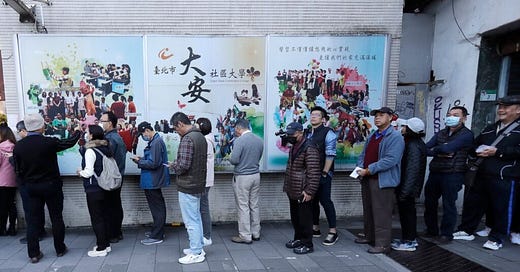




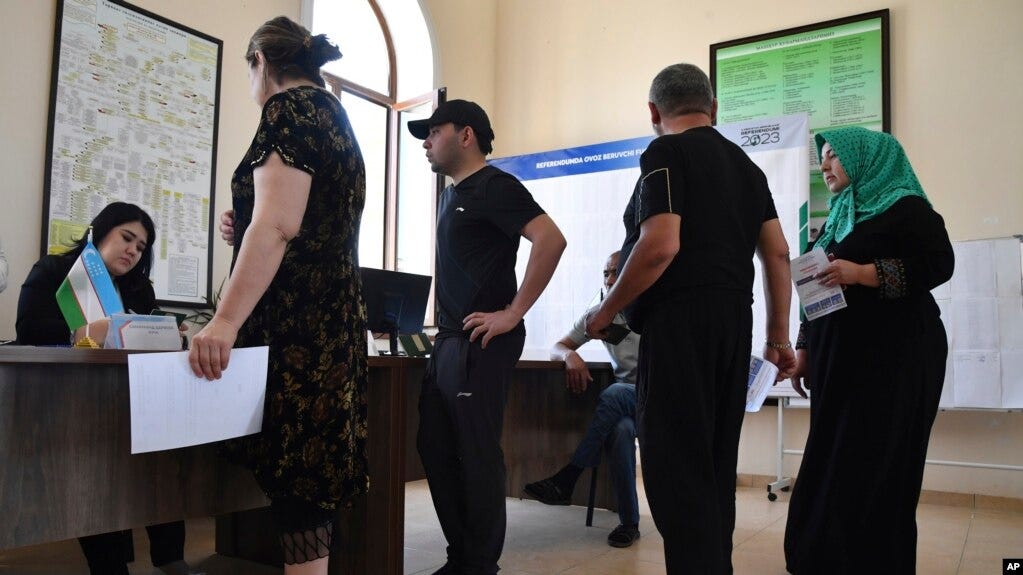
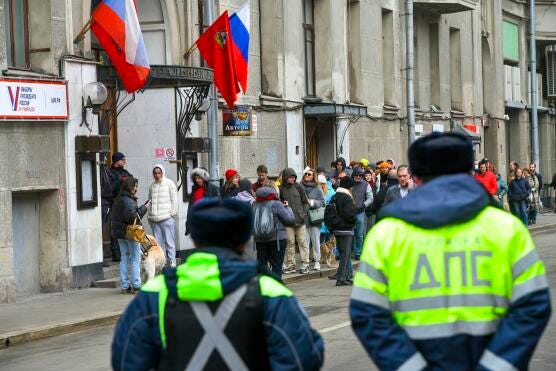





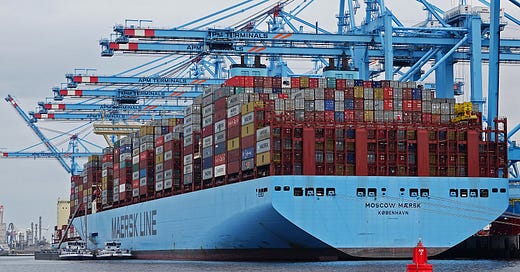

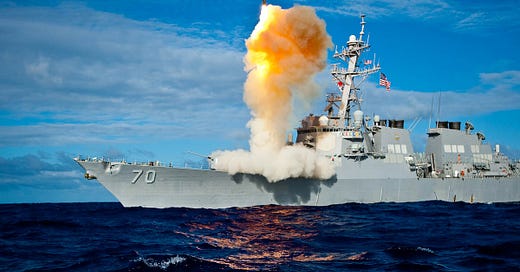

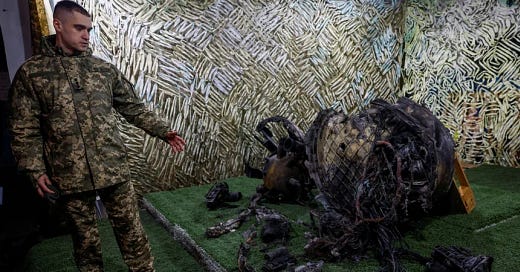

Thanks for the detailed report and for sharing your election observer experiences.
What I still wonder about, is why you assert that the Russian election, despite 4 candidates and high turnout, was NOT democratic.
Is overwhelming preference for a popular leader, especially during wartime and being threatened by the Global Hegemon and its allies, with the Motherland being actively attacked, why you are defining the election as NOT Democratic?
Do you have to have a bunch of fractious Parties who all run unattractive candidates, so all/most the mediocre aspirants are close competitors?
Was the 1972 Nixon win over McGovern (who won only 1 State) less Democratic than the contest between Gore and Bush, which was so close it went to the Supreme Court?
Would it look more Democratic if there had been a significant number of Communist Russians who thought the CP candidate was better than Putin to be President in the current critical period? I hear that there probably are more Communists left in Russia than there are Libertarians in the USA.
Is having a huge donor class having undue influence over the candidates' policies, determining who gets the nomination, and who has the most money for campaign propaganda an indication of more or less democracy?
I am not an academic in the field so I don't know the official criteria used to objectively define the relative extent of democracy. I presume it is measured on a continuum, unless it is just a propagandists' epithet. OTOH, I am trained as a scientist and know the difference between correlation and causation and the importance of specifying operational definitions for all critical concepts so that everyone is on the "same page".
Given your assertion that the Russian election was not Democratic, I would be grateful if you would explain more fully, so that I can understand what you mean.
Thanks!
"There is no doubt that the opposition in Russia is suppressed."
Would it be fair to say that here in the USA that the candidacy of RFK Jr is suppressed? It certainly looks that way from where I sit. The Democrats certainly have done everything possible to remove him from the process.
It isn't only Putin who suppresses his opposition. Scranton Joe does it as well.